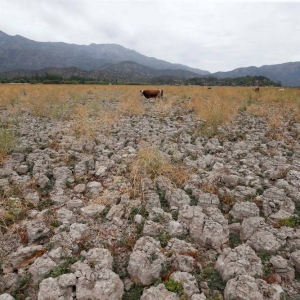The Stream, July 10, 2019: Chicago Halts Water Meter Installation Over Lead Contamination Concerns
The Global Rundown
The mayor of Chicago, Illinois, halts a water meter installation program after high concentrations of lead were found in the tap water of metered homes. Rainwater harvesting helps boost crops in Nepal. The California Senate approves a massive drinking water fund. A downpour on Monday morning in Washington D.C. was the heaviest deluge ever to hit the U.S. capital. Researchers say weather patterns over the Indian Ocean influenced recent drought in South America.
“Out of an abundance of caution, Mayor Lightfoot decided to take immediate action upon reviewing the latest information.” –Randy Conner, Chicago’s water commissioner, in reference to a decision to stop installation of water meters in the city due to lead contamination concerns. Testing revealed elevated lead levels in 22 percent of homes where a new meter had been installed. Chicago is also facing a revived lawsuit calling for the city to replace lead service lines. The Chicago Tribune
Latest WaterNews from Circle of Blue
HotSpots H2O: Water Supply Disrupted for 3.2m in Eastern Ukraine Amid Repeated Shelling — In the final week of June, five incidents disrupted water and sanitation systems in tumultuous Eastern Ukraine, according to a report by UNICEF.
What’s Up With Water– July 8, 2019 — This week’s edition of What’s Up With Water includes coverage on Vietnam‘s water challenges, Europe‘s recent heatwave, and the ongoing water crisis in Chennai, India.
By The Numbers
3.3 inches (8.4 centimeters) Rainfall recorded in a single hour in Washington D.C. on Monday morning. The deluge, which amounted to an estimated 3 billion gallons of water, caused flash flooding and high water levels across the capital city. The Washington Post
$130 million Amount that California would spend per year over the next decade to improve inadequate water systems if Governor Gavin Newsom signs off on the proposed drinking water fund. California’s Senate approved the fund 38-1 on Monday. U.S. News & World Report
Science, Studies, and Reports
The drought and marine heatwave that hit South America in 2013- 2014 were influenced by weather phenomenon in the Indian Ocean, according to a global team of researchers. The new study claims that a high-pressure atmospheric convection formed over the Indian Ocean, then generated a “planetary wave” that ultimately disrupted normal weather patterns in South America. The drought damaged crops and caused severe water shortages in São Paulo, Brazil. Phys.org
In context: São Paulo Faces Severe Water Shortage.
On the Radar
As water supply becomes less predictable in Nepal, farmers are utilizing rainwater harvesting techniques to continue growing crops. The project, spearheaded by the government, involves catching rainwater in plastic-lined storage ponds, then dispersing it during drier times of the year. Farmers say the ponds provide reliable irrigation despite increasingly erratic rainfall. Reuters
Kayla Ritter is a recent graduate of Michigan State University, where she studied International Relations and Teaching English to Speakers of Other Languages. She is currently based in Manton, Michigan. Kayla enjoys running, writing, and traveling. Contact Kayla Ritter








Leave a Reply
Want to join the discussion?Feel free to contribute!